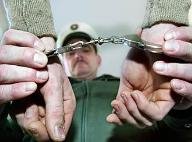Police Fear New Riots in Copenhagen After Street Clashes
Police in Copenhagen were gearing up Friday for a second day of riots as radical activists protested against the eviction of squatters from an underground cultural youth centre.
Police officers were out in full force on Friday, patrolling the troubled Copenhagen neighborhoods of Noerrebro and Christianshavn where 217 people were arrested on Thursday after left-wing activists clashed with police.
"We will be on the streets as long as it takes and with as many men as it takes to keep the peace," police spokesman Flemming Steen Munch told AFP, adding that police reinforcements had been called in from across the country.
A group of 18 demonstrators entered the headquarters of the Social Democratic Party on Friday around midday, unfurling a banner reading: "You stole the youths' building, now we're taking yours", but the situation remained calm, protestors said.
Demonstrators clash with police
The group, calling itself the Action Group for Frustrated Copenhagen Residents, demanded a political solution to the conflict which erupted when thousands of youths attacked police after a dawn raid to evict squatters from the Ungdomshuset, a four-storey haven for rebels, punks and squatters in the Norrebro district.
The building has been a favorite haunt for left-wingers since the 1980s when the city of Copenhagen gave the group permission to move into the building.
On Thursday activists threw stones, bottles, pots of paint, firecrackers, Molotov cocktails, and set up barricades, lit fires and overturned vehicles to protest the eviction.
Riot police used tear gas in an attempt to disperse the emonstrators, some of whom were masked.
"We were surprised by the extent of the conflict and the demonstrators' wild violence," Steen Munch said. The Noerrebro neighborhood is home to a large population of young radicals and squatters and is the scene of regular flare-ups with police.
In May 1993, bloody clashes erupted following Denmark's "yes" vote to the Maastricht treaty that led to the creation of the European Union and the euro single currency.
By late Thursday the violence had spread out from Noerrebro to the nearby district of Christianshavn. Christianshavn is next to the so-called "free city" of Christiania, an autonomous community in the city set up more than 30 years ago.
"Utterly reprehensible"
Danish politicians reacted with shock to the events. Danish Prime Minister Anders Fogh Rasmussen "vigorously condemned" Thursday's riots.
"It is utterly reprehensible that a few trouble-makers continue to create disorder," he told Danish news agency Ritzau.Justice Minister Lene Espersen told Danish television channel TV2 she was shocked by protestors' violence.
"We have freedom of expression in Denmark and it is shocking to see the use of violence and cobble stones to show what one thinks," Espersen said.
The Ungdomshuset was recently sold to the fundamental Christian group Fadershuset, which has demanded the eviction of the youths. An August 2006 court ruling ordered the occupants to be evicted from the centre, which they insist belongs to them.

The building has been a popular hang-out for Copenhagen's alternative crowd, offering concerts, plays and debates. Big stars such as Icelandic pop artist Björk have performed at the venue.
The Ungdomshuset Web site says the group is run along five simple guidelines: no sexism, no "heterosexism" -- prejudice in favor of heterosexuals -- no racism, no hard drugs and no violence.
Some onlookers at the scene on Thursday were critical of the Danish police action.
One Noerrebro resident described the operation as something resembling "the dismantling of a terrorist network."
Kristina Ilsoe, a Roskilde University professor who watched the events with her three-year-old son at her side, said she was "sad, like most of the neighbors, to see so-called tolerant Denmark not leave room for those who don't fit the norm."
Some banks and stores in the area barricaded their entrances to protect their businesses.
Foreigners arrested
Police meanwhile said they were re-establishing border controls o prevent an influx of supporters from other countries, in particular southern neighbor Germany.
Among the 217 arrested on Thursday were 17 foreigners from France, Germany, Norway, Poland, Lithuania, New Zealand and the United States. The German foreign ministry confirmed that nine Germans were among those held.
Three police officers and three demonstrators were injured during the clashes, police said.
Meanwhile, German police said on Friday they had detained 16 people after demonstrations broke out in the cities of Hamburg and Hanover in solidarity with the squatters evicted in Denmark.
On Friday the majority of Danish politicians, with the exception of the extreme-left, hailed the police action and denounced the activists' violence.
The press meanwhile unanimously condemned the "street wars" and "chaos."
According to the Danish foreign ministry, demonstrations supporting the activists were held in front of Denmark's diplomatic missions in Stockholm, Oslo, Berlin, Hamburg, Hanover, Flensburg and Vienna.
Deutsche Welle 03/2007


